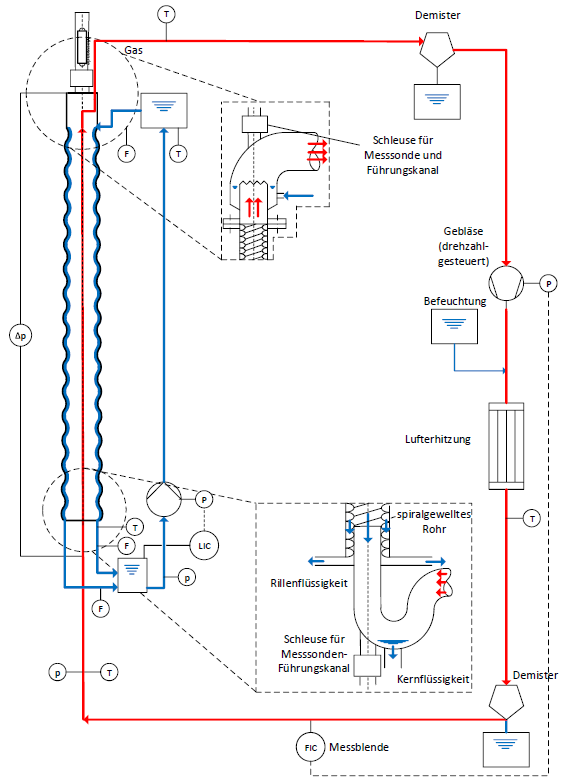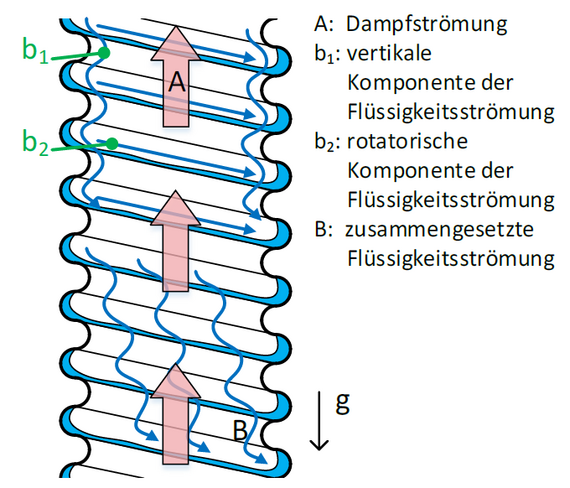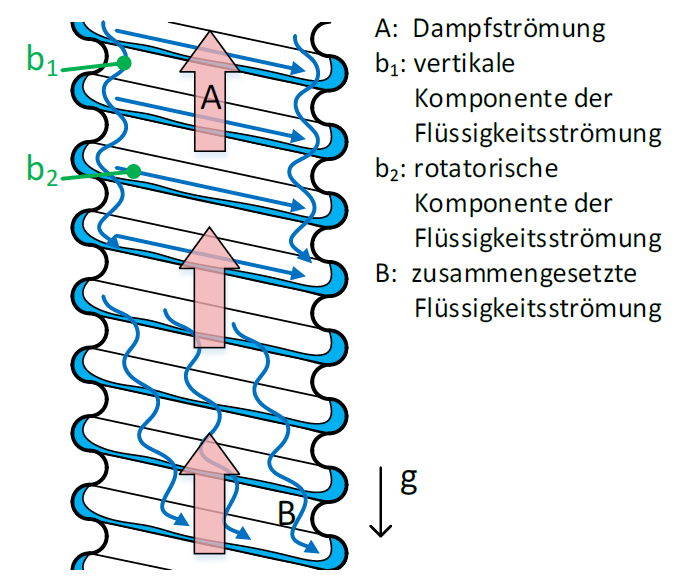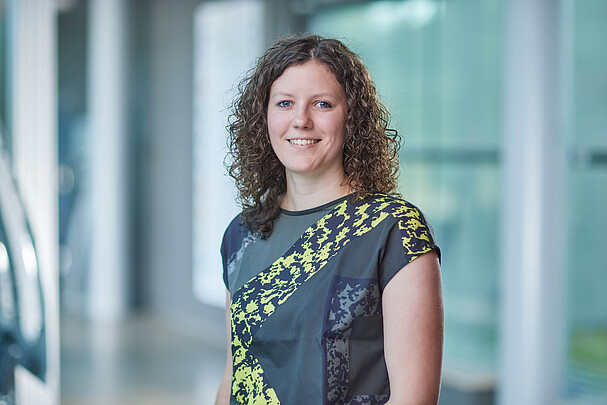Thermal energy of geothermal origin, as it can be provided e.g. by means of vertical geothermal probes concentrated at the earth's surface, has the advantage of a continuous availability independent of the day and the season. The further spread of this regenerative and environmentally friendly form of energy, e.g. for building energy supply, can be considerably promoted by safe planning and design.
One possible design is two-phase geothermal probes, which operate according to the thermosyphon natural circulation principle, whereby the pipe is filled with a working fluid that is in a boiling state and transports the geothermal heat to the head of the probe by evaporation and subsequent natural convection. The performance of such two-phase geothermal probes can be significantly increased by the use of coiled tubing. However, the understanding of the processes occurring inside the tube has not yet been fully developed, which is why a specific design of the two-phase probes with spiral tubes is still subject to uncertainties.
Within the scope of the project, the flow forms and the heat transfer in such a geothermal probe are to be investigated experimentally. The aim is to gain an understanding of the flow and fluid distribution inside the tube and to determine correlations by investigating the heat transfer in order to enable a more targeted design.
Project Promotion
The project is funded by the German Research Foundation (DFG) and is being carried out jointly with the ITLR of the University of Stuttgart.








30823 Garbsen




